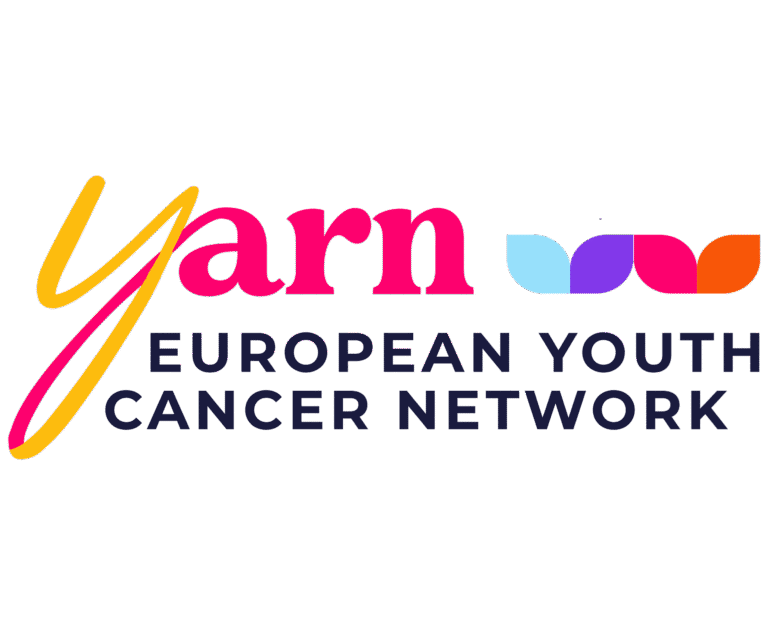
Genetic testing has revolutionized how you can approach cancer prevention and early detection. By analyzing your DNA, these tests can reveal inherited mutations that may increase your risk for certain types of cancer. This cutting-edge technology empowers you to take control of your health and make informed decisions about screenings and preventive measures.
You might wonder which cancers are linked to genetic mutations and detectable through testing. From breast and ovarian cancers to colorectal and prostate cancers, genetic testing can uncover risks tied to your family history. Understanding these connections could be the key to catching cancer early or even reducing your chances of developing it altogether.
Key Takeaways
- Genetic testing helps identify inherited mutations that increase the risk for several cancers, including breast, ovarian, colorectal, prostate, pancreatic, and melanoma.
- Testing focuses on specific genes, such as BRCA1, BRCA2, MLH1, and CDKN2A, linked to various cancer types, enabling informed prevention and early detection strategies.
- Candidates for genetic testing include individuals with personal or family histories of cancer, early-onset cancer, rare or multiple cancers, and specific ethnic backgrounds like Ashkenazi Jewish descent.
- Benefits of genetic testing include tailored prevention plans, early detection, and improved survival rates, but it also comes with challenges like false negatives, psychological impacts, and cost barriers.
- Genetic counseling is crucial for interpreting results, managing emotional concerns, and developing personalized healthcare approaches.
- Discuss genetic testing with a healthcare provider to evaluate personal and family cancer history, understand potential outcomes, and explore next steps.
Understanding Genetic Testing
Genetic testing examines your DNA to identify mutations linked to an increased risk of certain cancers. It helps assess hereditary risks, enabling personalized prevention and early detection strategies.
What Is Genetic Testing?
Genetic testing involves analyzing your genetic material to detect specific inherited alterations in genes. These alterations, called mutations, can indicate a predisposition to certain cancers. Tests commonly focus on known cancer-related genes, such as BRCA1, BRCA2, and MLH1. Identifying these mutations provides insights into inherited cancer risks. Healthcare providers often recommend it based on personal or family history of cancer.
How Genetic Testing Works
Genetic testing requires a sample from your blood, saliva, or cells. Specialized labs analyze the sample to identify mutations in targeted genes. Results indicate whether harmful gene changes are present and their potential link to cancer types. For example, BRCA mutations may signify a higher breast and ovarian cancer risk, while APC mutations can indicate colorectal cancer susceptibility. Genetic counseling often accompanies testing to help interpret results and guide your next steps.
Cancers Detectable Through Genetic Testing
Genetic testing can identify inherited mutations that increase your risk for several types of cancer. These tests target specific genes associated with various cancers, enabling early detection and more personalized preventive strategies.
Breast and Ovarian Cancers
Mutations in BRCA1 and BRCA2 genes are strongly linked to increased risks of breast and ovarian cancers. Testing for these genes can help estimate your likelihood of developing these cancers. Other genes, such as TP53, PALB2, and RAD51C, are also associated with these cancer types.
Colorectal Cancer
Genetic testing can detect mutations in genes like MLH1, MSH2, and APC. These alterations are linked to conditions like Lynch syndrome and familial adenomatous polyposis, both of which significantly raise colorectal cancer risk.
Prostate Cancer
Mutations in BRCA2, HOXB13, and ATM genes are associated with prostate cancer risk. Testing is particularly recommended if there’s a family history of prostate or related cancers.
Pancreatic Cancer
Inherited mutations in BRCA2, CDKN2A, and STK11 can increase your risk of pancreatic cancer. Genetic testing helps identify these risks, especially for individuals with personal or family histories of the disease.
Melanoma
Genetic testing can reveal mutations in the CDKN2A gene, the most common genetic link to cutaneous melanoma. Family members may also benefit from testing if familial melanoma is suspected.
Other Rare Cancers
Testing can detect risks for rarer cancers like medullary thyroid cancer (RET gene mutations) and adrenal gland cancer (SDH gene mutations). These tests are essential when such cancers cluster in families or occur at an unusually young age.
Benefits And Limitations Of Genetic Testing
Genetic testing offers significant insights into cancer risk, enabling preventive strategies and early interventions. However, understanding its advantages and challenges ensures informed decision-making.
Advantages of Early Detection
Identifying inherited mutations enables proactive healthcare decisions. Genetic testing detects predispositions to cancers like breast, ovarian, colorectal, and others, often before symptoms appear. Early detection elevates survival rates by allowing timely interventions, such as increased screenings or preventative treatments like risk-reducing surgeries. For example, individuals with BRCA1 or BRCA2 mutations can opt for intensified breast cancer monitoring or preventive mastectomies. Additionally, family members can benefit from knowing shared risks and planning personalized care.
Tailored prevention plans, based on genetic results, can reduce the likelihood of cancer development. Screening schedules like annual colonoscopies for those with Lynch syndrome or frequent skin exams for melanoma risks are crafted according to your genetic profile. These measures not only detect early cancer signs but also provide peace of mind.
Potential Challenges And Risks
Testing accuracy depends on the comprehensiveness of the genetic panel analyzed. False negatives, due to untested mutations, might provide unwarranted reassurance, while false positives can cause unnecessary anxiety. For instance, not all gene mutations tied to cancer are currently known, limiting deterministic results.
Psychological effects, including stress or guilt, may arise from uncovering hereditary cancer risks. If your results reveal a mutation, the emotional impact of sharing this risk with loved ones can be complex. Insurance discrimination concerns also exist, although laws like the Genetic Information Nondiscrimination Act (GINA) provide protections against health insurance and employment bias in the U.S.
Genetic counseling mitigates some challenges by interpreting complex data and guiding next steps. However, limited access to professional counseling or high testing costs might deter individuals.
Who Should Consider Genetic Testing?
Genetic testing can identify inherited cancer risks, guiding decisions about preventive care and early detection. Specific groups and considerations may indicate whether testing is appropriate for you.
High-Risk Groups
Some individuals face a higher likelihood of hereditary cancer due to their personal or familial history. You might consider genetic testing if:
- Family History Includes Cancer: Multiple relatives with the same or related cancers, such as breast and ovarian cancers, or early occurrences of diseases like colorectal cancer.
- Early-Onset Cancer Diagnosis: Cancer detected before age 50, such as breast, colorectal, or prostate cancer.
- Rare or Multiple Cancers: Personal history of rare cancers (e.g., ovarian or pancreatic cancer) or multiple primary cancers.
- Ethnic Background: Being of Ashkenazi Jewish descent, which has a higher prevalence of BRCA1 and BRCA2 mutations.
- Confirmed Genetic Mutations in Relatives: Family members diagnosed with cancer caused by inherited genetic mutations (e.g., BRCA, MLH1).
Testing benefits these groups by identifying genetic mutations linked to higher cancer risks.
Factors to Discuss With a Healthcare Provider
Your decision to pursue genetic testing should involve a detailed discussion with a healthcare provider or genetic counselor. Key topics to address include:
- Personal Cancer History: Review your own cancer diagnosis, treatment history, and risk for future cancers based on detected mutations.
- Family Health History: Evaluate patterns of cancer in your family, including types, ages of onset, and any known genetic mutations.
- Testing Outcomes: Understand potential results, including positive, negative, or variant of uncertain significance findings, and how they guide risk management.
- Psychological Implications: Consider emotional impacts, such as anxiety or guilt, and how results might affect family dynamics.
- Insurance and Legal Protections: Review protections under GINA, which safeguards against discrimination, and confirm test costs and coverage with your insurer.
By discussing these considerations, you can determine whether genetic testing aligns with your healthcare needs.
Conclusion
Genetic testing serves as a powerful tool in understanding your cancer risk and taking control of your health. By identifying inherited mutations, you can make proactive decisions about screenings and preventive measures tailored to your unique genetic profile.
While the process offers invaluable insights, it’s essential to weigh the benefits and challenges, including emotional and financial considerations. Consulting with a genetic counselor can provide the guidance you need to navigate this journey with confidence.
Empowering yourself with knowledge through genetic testing can lead to earlier detection, targeted prevention, and ultimately a better chance at reducing your cancer risk.
Frequently Asked Questions
What is genetic testing for cancer risk?
Genetic testing analyzes DNA to identify inherited mutations that increase the risk of certain cancers. It involves examining blood, saliva, or cell samples to detect abnormalities in specific genes, such as BRCA1 and BRCA2, which are linked to hereditary cancer syndromes.
How does genetic testing help in cancer prevention?
Genetic testing identifies inherited mutations that may increase cancer risk, enabling early detection and personalized preventive strategies. This can include enhanced screenings, lifestyle changes, or even preventive surgeries to reduce the likelihood of developing cancer.
Which cancers can be detected through genetic testing?
Genetic testing can assess risks for several cancers, including breast, ovarian, colorectal, prostate, and pancreatic cancer. It can also evaluate rarer cancers, such as melanoma, medullary thyroid cancer, and adrenal gland cancer, based on specific gene mutations.
Who should consider genetic testing for cancer?
Those with a family history of cancer, early-onset cancer diagnoses, rare or multiple cancers, specific ethnic backgrounds (like Ashkenazi Jewish descent), or known genetic mutations in relatives should consult with a healthcare provider or genetic counselor about testing.
What are the benefits of genetic testing for cancer?
Genetic testing provides insights into cancer risk, enabling tailored prevention plans and early intervention, which can improve survival rates. It empowers individuals to make informed healthcare decisions based on their genetic predisposition.
Are there any risks associated with genetic testing?
Yes, genetic testing may lead to emotional stress, anxiety, or guilt upon discovering cancer risks. False negatives or positives can also occur. Concerns about insurance discrimination exist, although laws like GINA offer some protection.
What is the role of a genetic counselor in testing?
A genetic counselor helps interpret test results, assesses family history, explains testing implications, and provides guidance on preventive actions or next steps. They help individuals navigate the emotional and medical complexities of testing.
How accurate is genetic testing for cancer risk?
Genetic testing is generally accurate, but false negatives or positives can occur. A false negative might miss a mutation, while a false positive might suggest a risk that doesn’t exist. Always review results with a healthcare provider or counselor.
Is genetic testing covered by insurance?
Many insurance providers cover genetic testing if medically necessary, such as when there’s a strong family history of cancer. Check coverage details with your insurer and inquire about genetic counseling sessions as well.
Can genetic testing predict cancer with certainty?
No, genetic testing identifies risks but cannot predict cancer with certainty. A mutation increases the likelihood of developing cancer but does not guarantee it. Lifestyle, environment, and other factors also play a role in cancer development.
What should I discuss with my doctor before genetic testing?
Discuss your personal and family cancer history, the potential outcomes of testing, emotional considerations, and insurance coverage. Your doctor or a genetic counselor can help you determine if genetic testing is the right step for you.






Comments
Thank you. Comment sent for approval.
Something is wrong, try again later